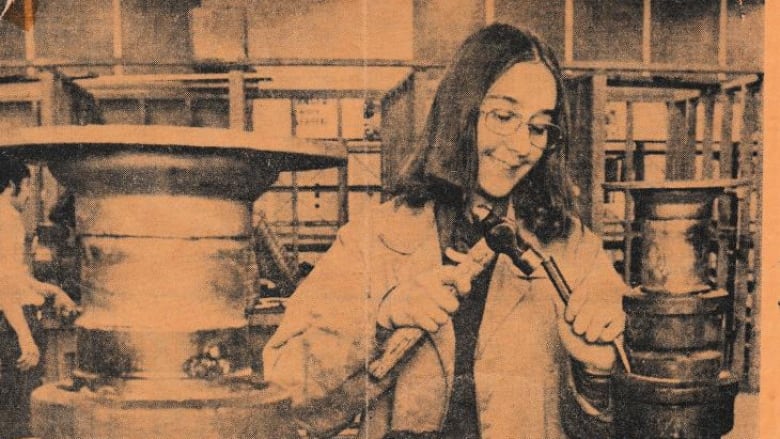
May 16, 2023
Deborah Johnston — or Debbie as she prefers to be called — remembers the day in the early 1970s when she was working in the office of her dad’s plumbing business in Ingersoll, Ont., and a provincial official walked in.
He wanted to know if anyone was interested in becoming a plumbing apprentice.
“I told him there was nobody there except my dad and me,” recalled Johnston, 69. “And he said, ‘Well, how about you?'”
When he returned a couple of days later, Johnston signed up to become an apprentice, and by 1977 had become Ontario’s first female licensed plumber.
Now retired, Johnston remembers her early days on the job and is encouraging other women to consider a career in the skilled trades.
“I was a good service plumber,” said Johnston, who used her maiden name, Davies, on her plumbing licence.
Although she was the only woman in her courses at Fanshawe College, Johnston said she was always treated with respect.
“The guys were very helpful. I was terrible at welding, so they helped me, and when they needed help with writing or spelling, then I’d help them with that, or their math. So it was like a two-way street.”
She got the same support out in the community.
“A lot of them knew me because of my dad. Everybody that I talked to in Ingersoll during those years said nothing but good things.
“The only time I ran into any kind of a negative comment was when I got to London for my first course at Fanshawe,” said Johnston. “The London Free Press came and did a story on me when I was in Fanshawe in 1974, and they asked other people in the industry their opinion. There was one person who said, ‘Oh, that’ll be the girl who thinks she can be a plumber.'”
Labour shortage
With Ontario facing a generational labour shortage as many skilled tradespeople approach retirement age, there’s a push to get more young people and women to enter the trades.
According to its April report, Build Force Canada projects Ontario will lose 18 per cent of its 2022 construction workforce in the next decade and will need to find 119,000 new workers during that time.
Later this month, Fanshawe College, in partnership with CWB Welding Foundation, will be offering a fully funded welding program for women and women-identifying individuals. Thirteen other institutions across Canada also offer the program.
Last month, the Ford government unveiled a mandatory technological education credit for high school students and is allowing young people to begin apprenticeships full time starting in Grade 11.
Encouraging women’s interest in the trades has to begin in high school, said Johnston.
“It needs to start early so that they can know that this type of work is available to them,” she said. “There is absolutely nothing out there in any kind of trade, not just plumbing, that girls can’t do.”
Getting women to join the trades is a longstanding conversation, said Katherine Jacobs, director of research at the Ontario Construction Secretariat (OCS).
“I feel a little more optimistic these days that it’s a little more realistic,” said Jacobs. “There’s been a bit of a changeover in the industry. All the baby boomers are starting to retire and I’m hopeful that this new generation of workers, they’ve been raised differently, they perceive things differently — it’ll be more of a welcoming environment.”
According to the OCS, just two per cent of unionized tradespeople are women.
Despite Johnston’s positive experience, women face a lot of challenges on the job, and as a result many leave the field even if they were brave enough to get into it, Jacobs said.
For starters, women tradespeople wanting to start a family may have concerns about getting paid maternity leave. But a number of trades unions are now offering leave programs for both men and women.
“I see some of the industry talking about some of these broader challenges that has impacted women staying in the trades,” said Jacobs.
Johnston has her own advice for women wanting to enter the field. “Do your work, Do it as well as you can. Keep going, and try your best.”
· CBC News ·
